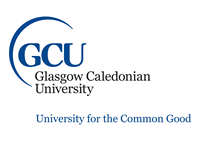Reference: SHLS20045
Modern cataract surgery offers the chance to correct longstanding refractive error, with a high level of accuracy. Despite the significant change in refractive power involved, unlike other refractive procedures, little attention is given to the impact of a large and sudden change to the overall refractive status. Current NHS guidelines ask the surgeon to aim for emmetropia for all patients (where possible).
Moreover, there is little to no patient involvement in the decision making around this refractive change. Anecdotal evidence from practitioners suggest some (myopic) patients, would prefer under correction to maintain clear unaided near vision they are accustomed to. However, this is not routine, despite guidance to this effect in both Ophthalmologist and Optometrists standards.
This project is looking to investigate the effect a detailed pre-surgical patient consultation has on patient satisfaction and visual comfort. It aims to establish an evidence base to inform best practice regarding patient consultation and refractive planning, prior to surgery.
The supervision team is working closely with the NHS Lanarkshire Ophthalmology team, including consultant ophthalmologist Mr Douglas Lyall, who will be acting as the principal surgeon and a supervisor for the project. We also have support from NHS Lanarkshire R&D department
The successful candidate will join the The Vision Research Group. This community of researchers, based at Glasgow Caledonian University, has a longstanding reputation in a number of areas of vision science.
The successful candidate must be a registered Optometrist and hold either a First-class or Upper-Second Class Honours degree in Optometry.
Specifications
The successful applicant will have a background in eye care, for example optometry or ophthalmology and be holding the minimum of a first degree (2:1 or above). Previous experience of health services and quantitative research methodology is desirable.
Candidates are requested to submit a more detailed research proposal (of a maximum of 2000 words) on the project area as part of their application.
This project is available as a 3 years full-time PhD study programme with expected start date of 1 October 2021
Candidates are encouraged to contact the research supervisors for the project before applying.
To be considered for this project, apply here
Applicants shortlisted for the PhD project will be contacted for an interview within four weeks from the closing date.
Dr Catriona MacLennan Email: [Email Address Removed] https://researchonline.gcu.ac.uk/en/persons/catriona-maclennan
Dr Sven Jonuscheit Email: [Email Address Removed] https://researchonline.gcu.ac.uk/en/persons/sven-jonuscheit
Mr Douglas Lyall Email: [Email Address Removed]

 Continue with Facebook
Continue with Facebook



